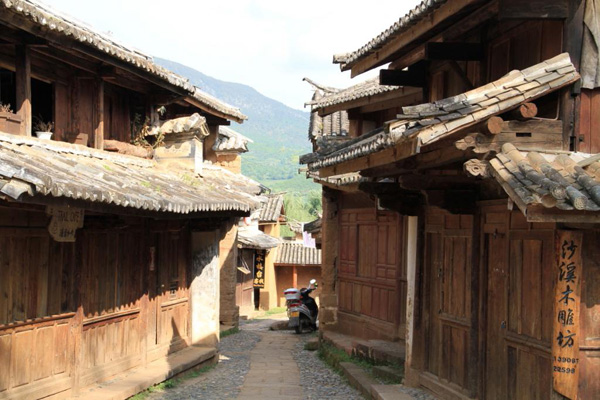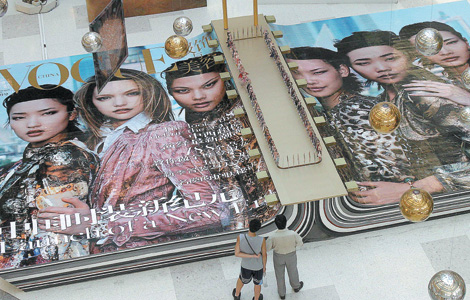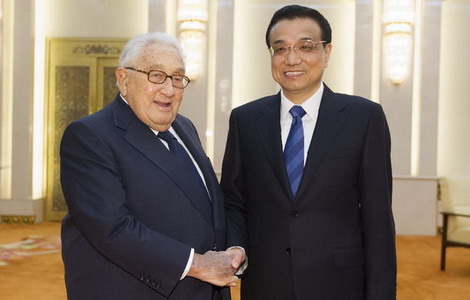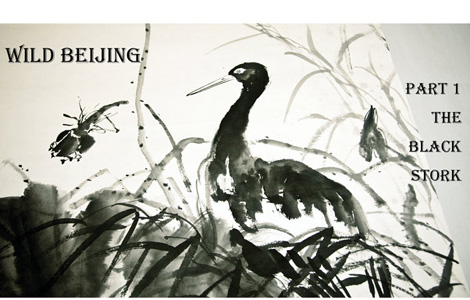A man of the people
Updated: 2013-06-30 08:25
By Han Bingbin (China Daily)
|
||||||||
 |
|
For more than 20 years Arie Boeve has been traveling around China and established his website of travel stories and photos. He says traveling is the best way to cultivate a respect for local people. Photos Provided to China Daily |
 |
| Boeve's travels have taken him to both famous and off-the-beaten track destinations. |
Arie Boeve's love affair with China and the Chinese began 20 years ago, but the passion persists and the love has borne fruit through his book Stories of Lao Arie. Han Bingbin reports.
One day in 1993 Arie Boeve walked out of his apartment near Beijing's Asian Games Village. Pointing at a white guy walking past him, the Dutch man uttered something that surprised even himself: "Wow, there's a foreigner," he shouted.
"I used to be the only foreigner in my neighborhood," he says.
That was 20 years ago, when Boeve paid his first visit to Beijing, a raw beauty of an Oriental capital. Back then the Third Ring Road had just been constructed. There were so few highways it took him almost a day to get to the Great Wall.
But he was somehow deeply attracted to the lovable qualities of the people he met and at night, when he had a barbecue by the roadside, he was greeted with warmth.
"They see you, gaze at you and say 'hello'. I always feel safe in China, in Beijing," he says. "I really started to love China. People are really nice."
Thanks to his plant trade business, he then started to travel to China three to five times a year. By the early 2000s he had "traveled so often to China and loved the country so much" that he decided to settle here. The result is that he now lives for up to 50 weeks in China, taking only a couple of weeks off to visit his family back in the Netherlands.
His business has enabled him to travel around the country and the establishment of his website Laowaichina.com. It attracts 5,000 visitors from about 70 countries every month and features meticulously chosen pictures from Boeve's collection of 100,000 pictures he took during 30 years of traveling, especially to China. For him, traveling is the best way to cultivate a respect for local people.
One of his most revealing trips, one he even now still talks about with excitement, was a boat trip on the Yangtze River from Sichuan down to Wuhan in Hubei province.
After missing a luxury ferry due to a traffic delay, Boeve had to take a small and smelly boat on which local farmers travel to Wuhan to sell their agricultural products.
When they arrived at almost midnight, he says, a line of people carrying their baskets of fruits and other products already waited to board the boat for a two-day trip down to Wuhan. His partner walked up to the guard saying he was accompanied by a foreigner and they were given the privilege of boarding first, while the others had to wait for two or three hours.
Feeling guilty, Boeve decided to associate with these people whom he found to be "poor but happy". When a policeman on board warned him to keep his passport with him in case he encountered problems, Boeve refused.
People were so friendly, he says, that a 2-year-old girl called him "grandpa" and hugged him.
"Such a trip allowed me to get in touch with the ordinary people at that time. You're in the middle of these people. You have to walk through them. You have to sit beside them. You are part of them."
Based on his traveling experiences, Boeve has just finished a book, in Dutch, called Stories of Lao (old) Arie. Before translating it into English for possible publication, Boeve sent it to be read and corrected by his friend Marcel Vink, a Beijing-based Dutch reporter.
"The book is written through the eyes of a foreigner who loves China, which is probably also what the reader does. So he is more standing next to the reader, instead of above - what most professional writers would do," Vink says.
One of the primary purposes of writing this book, Boeve says, is to record all the smiling faces he has seen and how happiness has been such a rich source of energy for his life in China.
"When I am on my way to the subway and pass all the local people with their small business spread out on the street or on the bridge waiting for a buyer all day and still smiling and happy it makes my heart feel warm," he says.
"Another time I saw people passing by on the street who were happily singing. I felt so lucky to be part of the community, though the people are poor and have nothing, they still feel happy, its wonderful."
Most Viewed
Editor's Picks

|

|

|

|

|

|
Today's Top News
Sperm banks struggle to attract donors
Train derailment prompts evacuations in Houston
Former Real boss Luxemburgo sacked by Gremio
Secret documents show NSA spying on EU offices
China pledges to clamp down on terrorism
Obama talks to Mandela's family
I can cope with favorite tag, says Murray
Winning without doping was impossible - Armstrong
US Weekly

|

|














